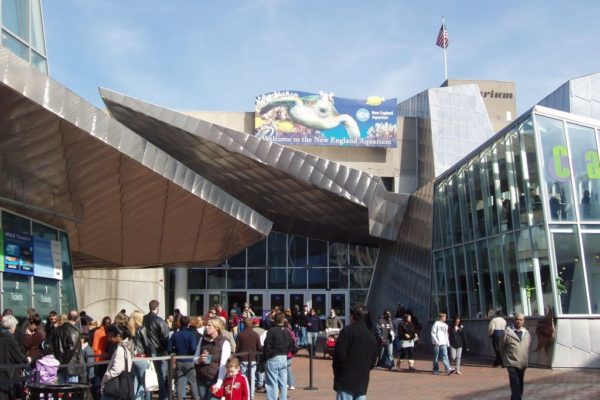-
Zoos and aquariums: Preparing for renewed interest in climate issues
Today, President Obama is expected to use his executive authority to enact an ambitious plan to reduce climate pollution by cutting emissions from coal power plants by as much as 20 percent. According to The New York Times, the plan will “set a national limit on carbon pollution from coal plants (and) allow each state to […]
Continue reading -
Positive Attitudes but Limited Knowledge Lead Discovery Place to Offer an Ocean Literacy Teacher Workshop
This is a guest post by Gail Lemiec, Coordinator at Charlotte Nature Museum There are many threats facing our ocean, from rising temperatures and acidification to overfishing and marine debris. Despite its vastness, the ocean is affected by people and our choices. We often hear about our ability to negatively affect the ocean with our […]
Continue reading -
RFP coming in June for innovative ideas from aquariums and zoos!
With thanks to National Oceanic and Atmospheric Administration (NOAA) for helping us establish our Innovative Solutions Grants+ program, a second round of funding will provide $100,000 for AZA-accredited aquariums and zoos that are based in the US. (We are trying to raise funding to expand this opportunity to all our partner zoos, aquariums, and museums […]
Continue reading -
First Annual World Oceans Day Photo Contest Launched
World Oceans Day helps you make a difference in your life, community, and world by taking action to protect our ocean—for present and future generations. Despite the huge challenges facing the world’s ocean, by working together we can achieve a healthy ocean that provides for the billions of humans, plants and animals which depend on […]
Continue reading -
Seas the Day in May – Green Gardening
“All at last returns to the sea- to Oceanus, the ocean river, like the ever-flowing streams of time, the beginning and the end.” – Rachel Carson Create an ocean-friendly lawn and garden. Last month (https://theoceanproject.org/2014/04/seas-the-day-april-clean-green/), we discussed ways to help clean your home the ocean-friendly way. This month you can help the ocean by creating […]
Continue reading -
Communications medley: Survey roundup and framing tips
In this week’s round up: How millennials are thinking about transportation, Americans view environment more important than growth, and the impacts of recent weather events on public perception of climate change. If you’re a science communicator or educator at an informal science center (such as a zoo, aquarium, or museum) trying to understand the perspectives […]
Continue reading -
Shaping a conservation “ask”
For World Oceans Day this year, we’re encouraging all participating organizations to create celebrations that go beyond raising awareness to inspiring action under the theme, “Together we have the power to protect the ocean!” We want to make real change for the ocean, so we need to ask people to do something to keep the […]
Continue reading -
Seas The Day April – Clean Green
The Seas the Day initiative encourages and empowers people to take ocean conservation personally. Each month, the Seas the Day initiative features a new conservation theme with ways to help so come back regularly for more ocean-helping ideas and tips! Created mainly to support our partner ZAMs (Zoos, Aquariums, and Museums and other visitor-serving organizations […]
Continue reading -
ISG+ New Project: NEAq ClimaTEENS creating a city-wide dialog for youth in Boston
This guest post by Heather Deschenes of New England Aquarium is the first in a 3-part series on their Innovative Solutions Grants+ project, which investigates how teen ambassadors can make a difference for their city’s green future. With support from The Ocean Project’s Innovative Solutions Grants and Program, ClimaTEENS is a gathering of 15-18 year-olds that […]
Continue reading -
Communications medley: A car-free future and the impacts of extreme weather on climate opinion
In this week’s round up: How millennials are thinking about transportation, Americans’ view environment more important than growth and the impacts of recent weather events on public perception of climate change. If you’re a science communicator or educator at an informal science center (such as a zoo, aquarium, or museum) trying to understand the perspectives […]
Continue reading


